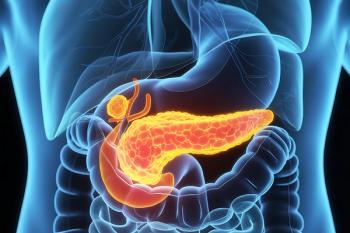
Paricalcitol found to reduce albuminuria in type 2 diabetes
In a multinational, placebo-controlled, double-blind trial, the selective vitamin D receptor activator paricalcitol (Zemplar, Abbott Laboratories), at doses of 1 µg or 2 µg daily, reduced albuminuria in patients with type 2 diabetes, who were already being treated with renin-angiotensin-aldosterone system inhibitors.
In a multinational, placebo-controlled, double-blind trial, the selective vitamin D receptor activator paricalcitol (Zemplar, Abbott Laboratories), at doses of 1 µg or 2 µg daily, reduced albuminuria in patients with type 2 diabetes, who were already being treated with renin-angiotensin-aldosterone system inhibitors. This research was published online November 4 in The Lancet, HealthDay News reported.
The primary end point was the percentage change in geometric mean urinary albumin-to-creatinine ratio (UACR) for the combined paricalcitol groups versus the placebo group.
The combined paricalcitol treatment group had a non-statistically significant between-group difference versus placebo of −15%; the 1-µg and 2-µg treatment groups had between-group differences versus placebo of −11% (P=.23) and −18% (P=.053), respectively. Early, sustained reductions in UACR was seen in the 2-µg paricalcitol group (P=.014 vs placebo). All groups had UACR reductions, including the placebo group.
Dick de Zeeuw, MD, of the University of Groningen, Netherlands, and lead researcher, told Formulary that future studies with renal outcomes should be conducted to prove paricalcitol’s renal and cardiovascular protective effects.
Abbott Laboratories funded the study, and several authors disclosed financial ties to the company, as well as to other pharmaceutical and/or medical device companies.
Newsletter
Get the latest industry news, event updates, and more from Managed healthcare Executive.























